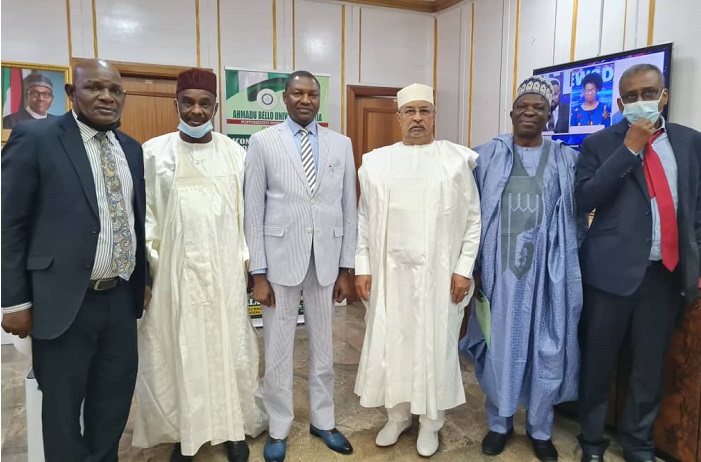The Attorney General of the Federation and Minister of Justice, Abubakar Malami, has assured the Special Representative of the United Nations Secretary-General for West Africa and Sahel, Mahamat Saleh Annadif, that the federal government was ready to finalise the boundary demarcation exercise between Nigeria and Cameroon.
The areas of dispute between both countries include the Bakassi Peninsula and its dates back to 1994.
Advertisement
Annadif, who doubles as the Chairman, Cameroon-Nigeria Mixed Commission, visited the AGF in Abuja on Tuesday.
The commission is saddled with the responsibility to facilitate the implementation of the 10 October 2002 judgment of the International Court of Justice (ICJ) on the Cameroon-Nigeria boundary dispute.
The UN Office stated that he was in Nigeria to “review the progress of the joint project of border demarcation between the two countries.”
Malami told Annadif that he hoped that the disagreed areas of boundary between both countries would be settled quickly.
Advertisement
“I wish to assure you that the Nigerian Delegation is confident that under your leadership, the Cameroon-Nigeria Mixed Commission (CNMC) will continue to achieve more success in its efforts to permanently demarcate the boundary between Cameroon and Nigeria in line with the Judgment of the International Court of Justice and other relevant Treaties and Declarations,” Malami said in a statement issued by his spokesperson, Dr. Umar Jibrilu Gwandu.
He urged relevant authorities to interpret the judgment of the International Court of Justice on the matter without fear or favour.
Recall that on 29 March 1994, Cameroon had filed a suit against Nigeria with regards to sovereignty over the Bakassi Peninsula.
It urged the said court to, “determine the course of the maritime frontier between the two States in so far as that frontier had not been established in 1975.”
In June 1994, Cameroon further applied that the court should determine “the question of sovereignty over part of the territory of Cameroon in the area of Lake Chad.”
Advertisement
But the FG raised preliminary objections against Cameroon’s claims.
Part of ICJ’s 2002 judgement reads:
“In its Judgment, the Court requested Nigeria, expeditiously and without condition, to withdraw its administration and military or police forces from the area of Lake Chad falling within Cameroonian sovereignty and from the Bakassi Peninsula. It also requested Cameroon expeditiously and without condition to withdraw any administration or military or police forces which might be present along the land boundary from Lake Chad to the Bakassi Peninsula on territories which, pursuant to the Judgment, fell within the sovereignty of Nigeria. The latter had the same obligation in regard to territories in that area which fell within the sovereignty of Cameroon.”
On its part, the CNMC had in 2019 stated that the delay in giving practical effect to the ICJ’s judgement on the dispute was caused by political and security issues.
“In addition, even though the court resolved disagreements over the interpretation to be given to the delimitation instruments, the Parties sometimes offer competing interpretations of the court’s interpretations, which creates an impasse in completing the demarcation,” the CNMC stated in a 2019 report.



